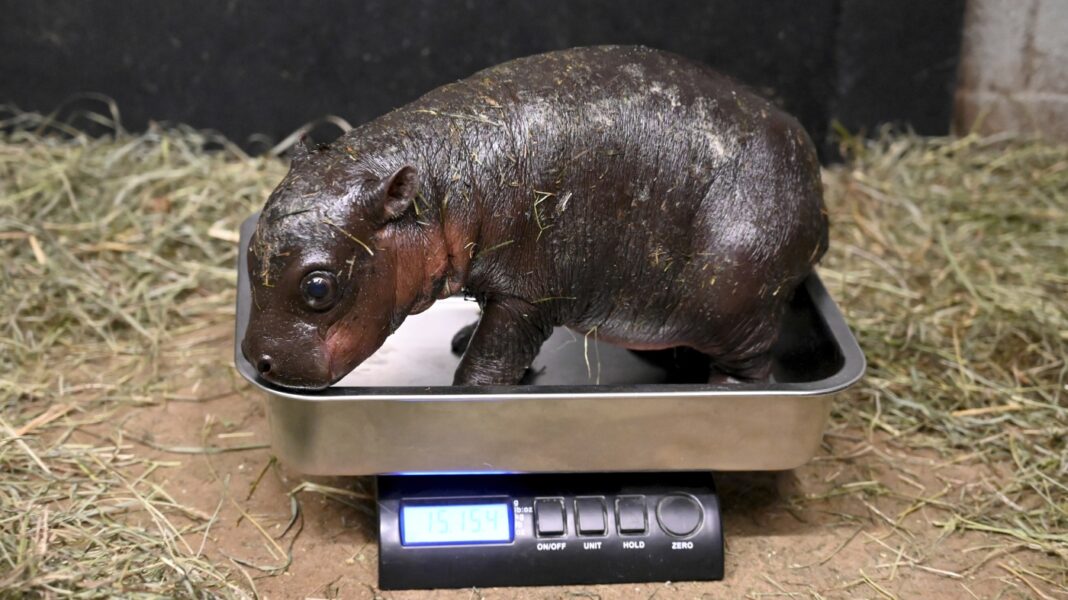
This photo provided by the Metro Richmond Zoo shows a baby pygmy hippo during a vet exam on Dec. 14, 2024, in Moseley, Va.
Metro Richmond Zoo/AP
hide caption
toggle caption
Metro Richmond Zoo/AP
It looks like production at the viral baby pygmy hippo factory is at an all-time high, with the Metro Richmond Zoo in Moseley, Va., announcing the birth of a healthy female hippo to parents Iris and Corwin this month.
The gloriously moist critter is the same species as worldwide superstars Moo Deng from Thailand and Haggis from Scotland (though pygmy hippopotamuses are native to forests and swamps in West Africa). At least one other baby pygmy hippo made a public appearance to fanfare this year — Toni, in Germany.
YouTube
The American member of this squad will have her name decided in an online poll held by the Metro Richmond Zoo.
Voting is open until 2 p.m. Tuesday, with the winning name announced on New Year’s Day. The name options are Poppy, Juniper, Hammie Mae and Omi.
Voters will have to choose carefully and cement her place as an icon next to her peers.
Moo Deng was one of the internet’s biggest celebrities in 2024, known for her rotund figure and fiery personality. She was plastered across social media feeds, parodied on SNL, and faced the pitfalls of fame when visitors had their viewing privileges restricted for throwing items into her enclosure. When Haggis came onto the scene in Edinburgh, she was subjected to headlines pitting her against her ham-like sister.
This new boom of squishy babies marks important ecological progress for pygmy hippos, which are an endangered species, according to the International Union for Conservation of Nature.
An estimated 2,000 remain in the world, mainly in Liberia, Sierra Leone, Guinea and the Ivory Coast, due to habitat loss and being hunted for bushmeat, according to the Pygmy Hippo Foundation.
So the latest baby is not just a new source of joy for us to fawn over online. NPR’s Jaclyn Diaz spoke to Jonny Appleyard, hoofstock team leader at Edinburgh Zoo back in November, about how crucial each new birth is, saying, “It is important to remember that pygmy hippos are incredibly rare,” and that having little ambassadors to connect with visitors can “help raise awareness of the challenges the species face in the wild.”
In short: Keep those slick little babies coming!





